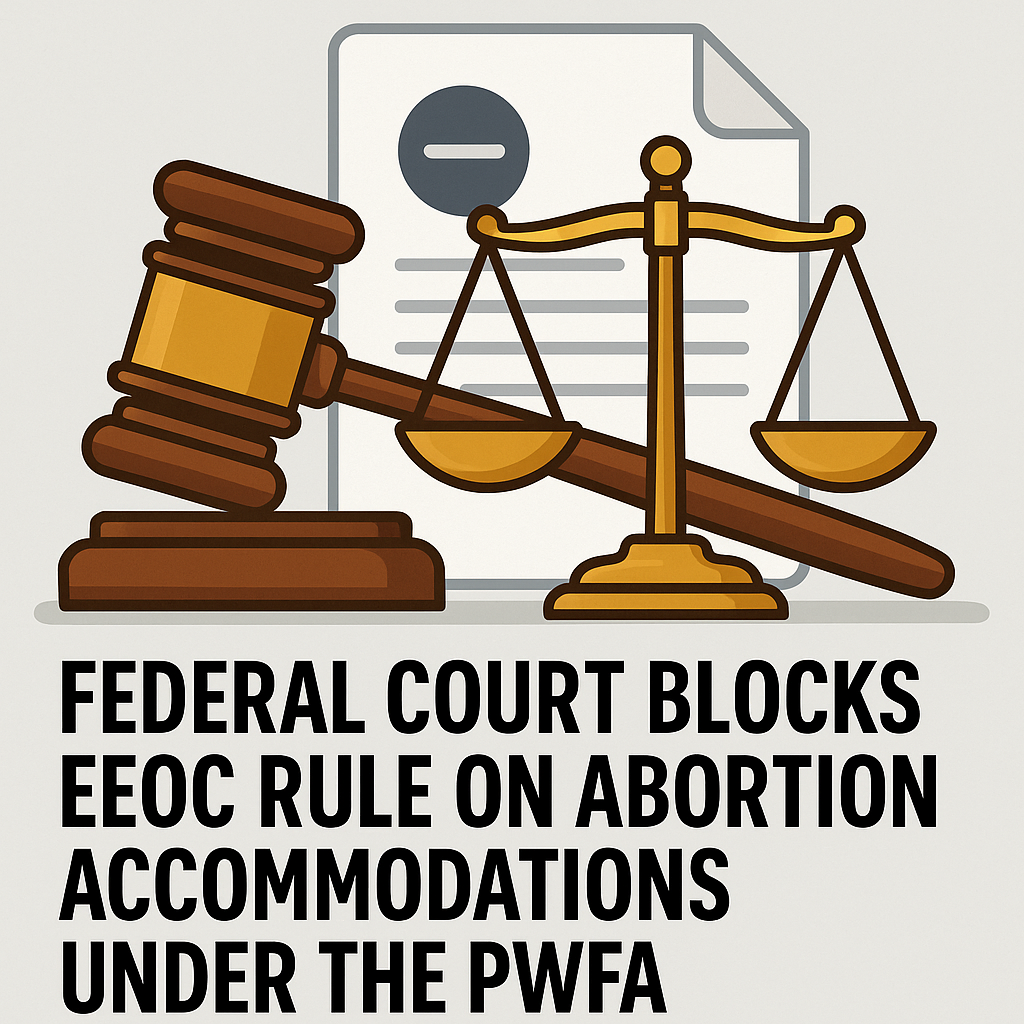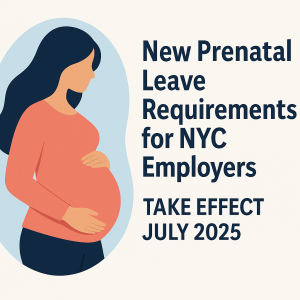Federal Court Blocks EEOC Rule on Abortion Accommodations Under the PWFA
Overview
A federal district court has struck down part of the Equal Employment Opportunity Commission’s (EEOC) final rule under the Pregnant Workers Fairness Act (PWFA), specifically blocking provisions that required employers to accommodate elective abortions as part of pregnancy-related medical conditions.
The EEOC’s Original Rule
The EEOC’s final rule, issued earlier this year, interpreted the PWFA to require employers to provide reasonable accommodations for elective abortions. This went beyond the statute’s plain language, which mandates accommodations for pregnancy, childbirth, or related medical conditions. The agency’s rule became the subject of immediate legal challenges.
The Court’s Reasoning
The U.S. District Court in Louisiana held that:
- Congress did not expressly authorize abortion accommodations under the PWFA. The court emphasized that Congress passed the PWFA after the Supreme Court’s Dobbs decision but chose not to address abortion directly in the statute.
- The EEOC exceeded its authority by effectively rewriting the statute to include elective abortions.
- The major questions doctrine applied, which limits agency authority to adopt sweeping new regulatory obligations without clear Congressional authorization.
- The court vacated the abortion-related portions of the rule nationwide but allowed the rest of the EEOC’s regulations to stand.
What Remains in Effect
- Employers remain obligated to accommodate pregnancy, childbirth, and related medical conditions under the PWFA.
- Title VII of the Civil Rights Act still prohibits discrimination against employees who choose to have an abortion.
- Some states may still have additional requirements related to abortion accommodations under state law.
What Employers Should Do
- Review current accommodation policies to ensure compliance with federal and state law.
- Avoid relying solely on the federal ruling; carefully monitor state-specific obligations that may still require accommodation.
- Train HR staff and managers on how to evaluate pregnancy-related accommodation requests.
- Continue monitoring any further legal developments, including possible appeals or EEOC updates.
For questions or assistance in reviewing your accommodation policies, please contact Chaim Book at cbook@booklawllp.com or Sheryl Galler at sgaller@booklawllp.com.


